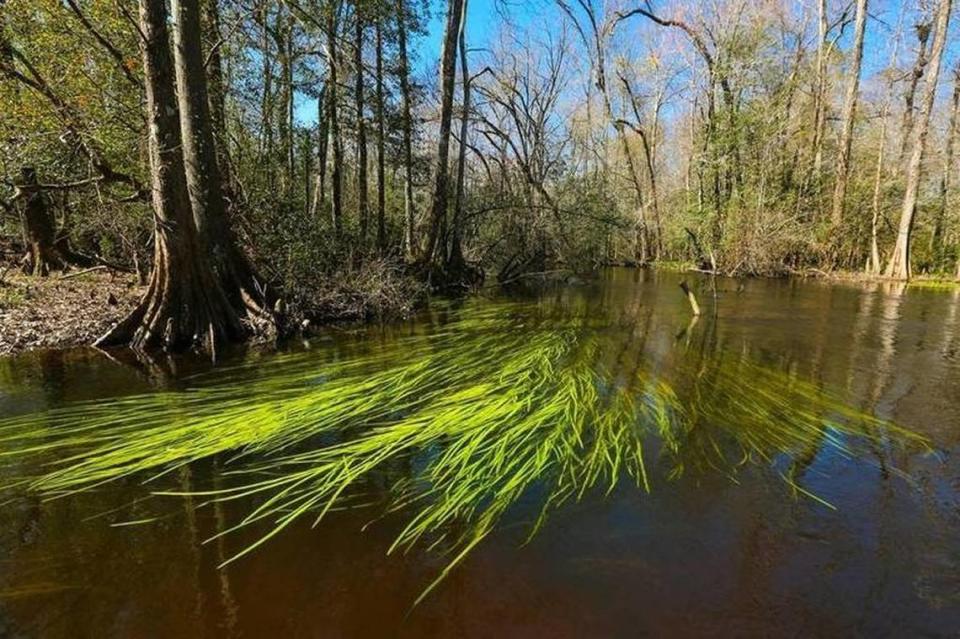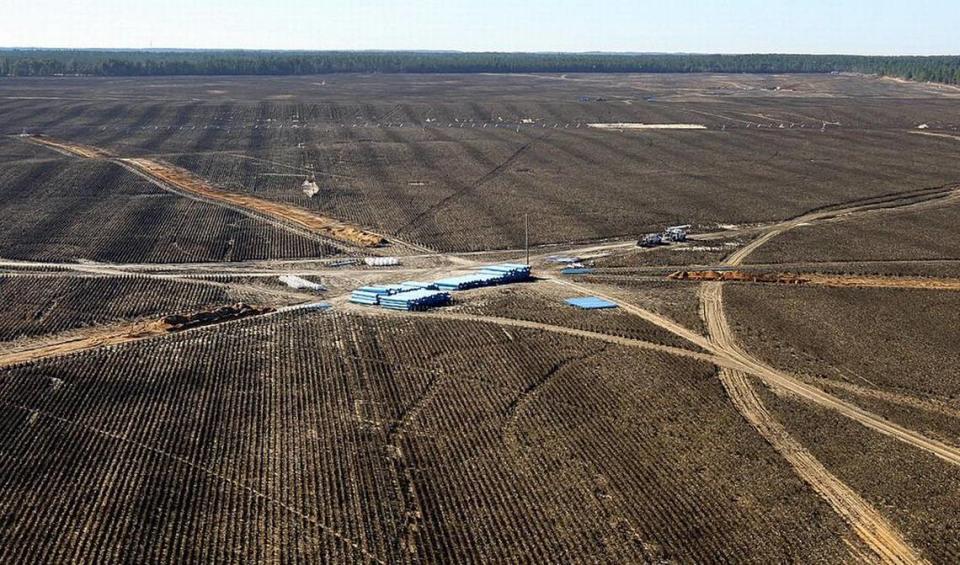Megafarms could suck rivers dry because state agency isn’t following law, groups charge
Three environmental groups are threatening to sue the S.C. Department of Health and Environmental Control over what they say is a failure to protect the state’s rivers from industrial scale crop farms.
A 2010 water law was supposed to prevent rivers from being sucked dry by farms, factories and drinking water plants, but DHEC’s interpretation of the law has left rivers and creeks vulnerable from farm withdrawals across South Carolina, the environmental groups say.
In short, the department wrote rules that conflict with the 2010 law – and those regulations go easy on industrial-scale farms, said Carl Brzorad, an attorney with the Southern Environmental Law Center in Charleston. Regulations written by agencies are supposed to support state laws, but in this case, they did not, he said.
A petition the law center filed Monday with DHEC says the agency has 30 days to change the rules to match state law, or conservation groups “may exercise their right to initiate a civil action against the department.’’
The Southern Environmental Law Center is a legal service representing the S.C. Wildlife Federation, Friends of the Edisto and American Rivers.
“The DHEC rules allow major agricultural corporations to take all the water for themselves,” according to a statement from Frank Holleman, a senior law center attorney who works with Brzorad. “We’re asking that DHEC follow the law passed by our elected representatives and stop writing blank checks to de-water South Carolina’s rivers.”
Depleting rivers takes away water that other farms might need for irrigation, as well as drinking water utilities need to provide customers. Not enough water in a river also makes it hard to dilute wastewater discharges, while taking away fish habitat and places for people to boat or kayak..
The letter to DHEC questioning the state’s effectiveness at protecting rivers from overuse is the second of its kind in less than two years.
In May 2022, the U.S. Environmental Protection Agency said the state’s 2010 water withdrawal law and accompanying regulations don’t prevent rivers from being pumped dry. Among other things the EPA letter said the law is not scientifically sound, doesn’t preserve fish and wildlife, and actually allows overuse of rivers, instead of protecting them.

Despite the EPA’s admonition, neither the Legislature nor DHEC have made recommended changes to the law or to the regulations, environmentalists say.
DHEC, whose mission is protecting the state’s environment, did not immediately respond to requests for comment.
The environmental groups’ lawsuit threat is the latest dust up in a disagreement that has simmered since soon after the water law took effect more than a decade ago. Critics say the surface water law and its regulations are so filled with loopholes that they don’t provide much protection for rivers.
In this case, the environmental groups are challenging the regulations. They say the law needs improvement, but the regulations are worse. At the very least, the rules need to match the law, Brzorard said.
The biggest issue through the years has been the lack of oversight of huge farms that, in some cases, have already taken a toll on groundwater in rural areas of South Carolina. Those farms, often referred to as “megafarms,’’ are massive massive crop-growing operations that have cleared thousands of acres of forests.
Unlike industries, megafarms aren’t required to get permits to withdraw large quantities of water from rivers, The State reported in a 2017 series on the impacts of megafarms on South Carolina.
That allows the farms to gain approval without receiving the same level of scrutiny from DHEC as industries. Farms also don’t have to notify the public of their plans to take major amounts of water from rivers.
The trigger for concerns over the 2010 surface water withdrawal law was the opening of a large potato farm east of Aiken.
The farm gave no public notice it was opening or that it would take water from the South Fork of the Edisto River because the law didn’t require it. Walther Farms, an agribusiness from Michigan, gained approval to siphon away billions of gallons from the South Fork to water its potatoes.
People living in the area were incensed and began pushing for changes to the state’s rules and regulations overseeing large water withdrawals.
But while megafarms are not regulated as tightly as industries, they do have to comply with a section of the water withdrawal law, known as safe yield, that was intended to protect rivers from over-pumping.
That section of the law is intended to make sure some water is left in rivers after big farms siphon water away for irrigation. But DHEC has interpreted that in such a way that it allows rivers to be drained completely, say environmentalists and some state river experts.
The agency allows those seeking to withdraw water the ability to take 80 percent of a river’s capacity, based on a mean annual daily flow. But at certain times of the year, river flow is below the daily annual mean, which would allow a waterway to be completely drawn down.
It is not known if rivers or streams have, at any point, dried up as a result of too much pumping by large farms, but statistics provided by the Southern Environmental Law Center show that some rivers are in trouble.
Rivers that often exceed the safe yield include the South Fork of the Edisto between Columbia and Aiken; the Reedy River, which runs through Greenville; and the Tyger River near Spartanburg, according to the environmental group’s petition to DHEC.
Doug Busbee, a Wagener businessman who has fought for tougher surface water controls on megafarms, said the battle over river withdrawals needs to end in the public’s favor.
Busbee was so upset with the law that he applied for – and won – DHEC approval to use all of the capacity in parts of the upper Edisto River basin. He is not using the water, but sought the approval to prove a point that the law is flawed. Since Busbee is not using the water, his actions have saved some parts of the basin from new withdrawals by megafarms.
“We’ve got a law that is dangerous, and the bottom line is I hope our lawmakers will listen to the people who understand the complexity of dealing with this situation,’’ Busbee told The State newspaper. “I hope they will try to come together to get us a law that would be safe for everyone.’’



